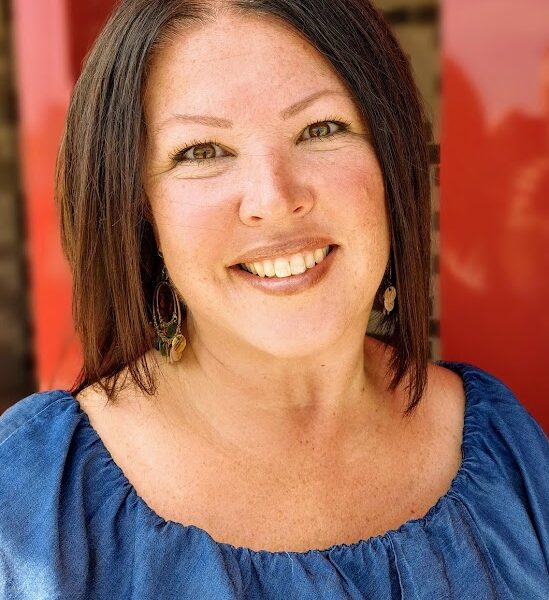As a parent of two children educated in the public school system (one recently graduated and one beginning their high school journey), I value the partnership schools play in raising and shaping our kids and recognize the importance of having a voice and presence in these communities. After serving on School Council for four years, I pursued Trusteeship with a desire to better understand my school division, the broader education system, and a commitment to advocate for the needs of all students.
My experiences of being an Early Learning Educator, a Therapeutic Parent to Indigenous youth, and peer counsellor have given me a unique and empathic lens through which I connect, engage and advocate. I have served two terms as Trustee for Lethbridge School Division; two years as Board Chair and four years as Vice-Chair.
I believe growth comes through shared perspectives, continuous learning, innovative practice, and fostering a culture of welcome, safety and trust. I am dedicated to helping shape a learning environment that empowers students to succeed with confidence, compassion, innovation, and care—preparing them to make meaningful contributions both locally and globally.
Statement of beliefs
I believe in public education.
I believe every child has the right to receive an educational experience that gives them the intellectual, social, emotional, and physical skills necessary to engage successfully in a progressively changing world, and to have the opportunity to discover and belong in an environment of safety, respect, and equity.
I believe every voice matters and that the collective perspectives of students, staff, parents and community members enrich our schools for the better.
I believe cross-ministerial collaboration is essential for ensuring barriers to learning and meaningful engagement are removed.
I believe thriving public schools cultivate the thinkers and leaders of today and tomorrow, provide diverse opportunities for learning and support, and ensure more students successfully transition to the workforce or pursue post-secondary education.
I believe strong public schools strengthen community and economic development and help families build roots and stay for the long term.
I believe in governance embedded in integrity, accountability, collaboration, and communication.
Priority areas
Champion public education and advocate for full funding to provide essential supports and resources.
New school builds and modernizations to allow for lower class sizes and innovative learning spaces.
Strengthening student achievement results and improvement in Division Assurance Results.
Views on funding
Education has been historically underfunded. This has been exasperated over the past 5 years through the 3-year WMA, increased funding to charter schools and the directive for boards to draw down much needed reserves. Public dollars belong in public education where publicly elected trustees ensure those dollars are distributed to reflect the values and needs of their community.
As a trustee I have, and will continue, to advocate for public dollars to stay with public schools and call to attention the ‘choice’ public education delivers to all students with equity and accessibility. Inclusion without appropriate funding is exclusion. We must ground our advocacy in quantitative and qualitative data and create a clear awareness of the barriers impeding a thriving public system.
How learning conditions can be improved
I want our schools to be accessible spaces where students can learn without barriers and receive the supports and opportunities they need to thrive, find success, discover and know their value, and participate fully within the community. Our core business is learning but the scope of needs and expectations within our schools is so much broader. Classroom complexity, diverse learning levels, class size, and mental health are just some of the areas where challenges are experienced today. There must be adequate funding and cross-ministerial effort to ensure our kids receive the support they need. Advocacy for increased health care funding is needed to ensure growth in the hiring and retaining of essential positions such as SLPs, OTs and mental health supports to decrease the wait times for students receiving these services. Expertise is found in the perspective of students, staff and parents. We must continue to listen to hear what is working, what isn’t, and find solutions together.
How trustees and school boards can best support teachers
Teachers do an incredible job inspiring and leading learning, but they are tired. Trustees support teachers by showing up and having meaningful and intentional engagement: asking questions, listening to their experiences and perspectives, and respecting their professional impact and value. As a Board these perspectives help guide decision-making and advocacy efforts, and they ensure budget decisions support students and classroom conditions. Boards also support teachers by championing a culture of collaboration, transparency, well-being and respect. We need to celebrate and share the successes of our division and the invaluable work our teachers (and all staff!) do to support our students.
I welcome you to please share with me how I can best support you in your role over this next term.
Views on the new K-6 curriculum
As Board Chair, I spoke against the curriculum when it was introduced for divisions to pilot, stating it did not meet the needs of 21st education or support quality learning that will develop innovative thinkers or responsible citizens with inclusive mindsets. Even with the redraft, concerns remain around the lack of involvement of teachers in its speedy development, focus on rote memorization over development of critical thinking and problem solving skills, exclusion of meaningfully integrated Indigenous and culturally diverse perspectives, concepts that are not considered to be developmentally appropriate, lack of resources and too quick a launch. I have heard some positive feedback from teachers as well. Feedback must be given to advocate for the continued improvement of this curriculum as well as for significant involvement of educators with the development of the new grade 7-9 curriculum.

